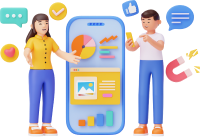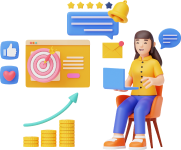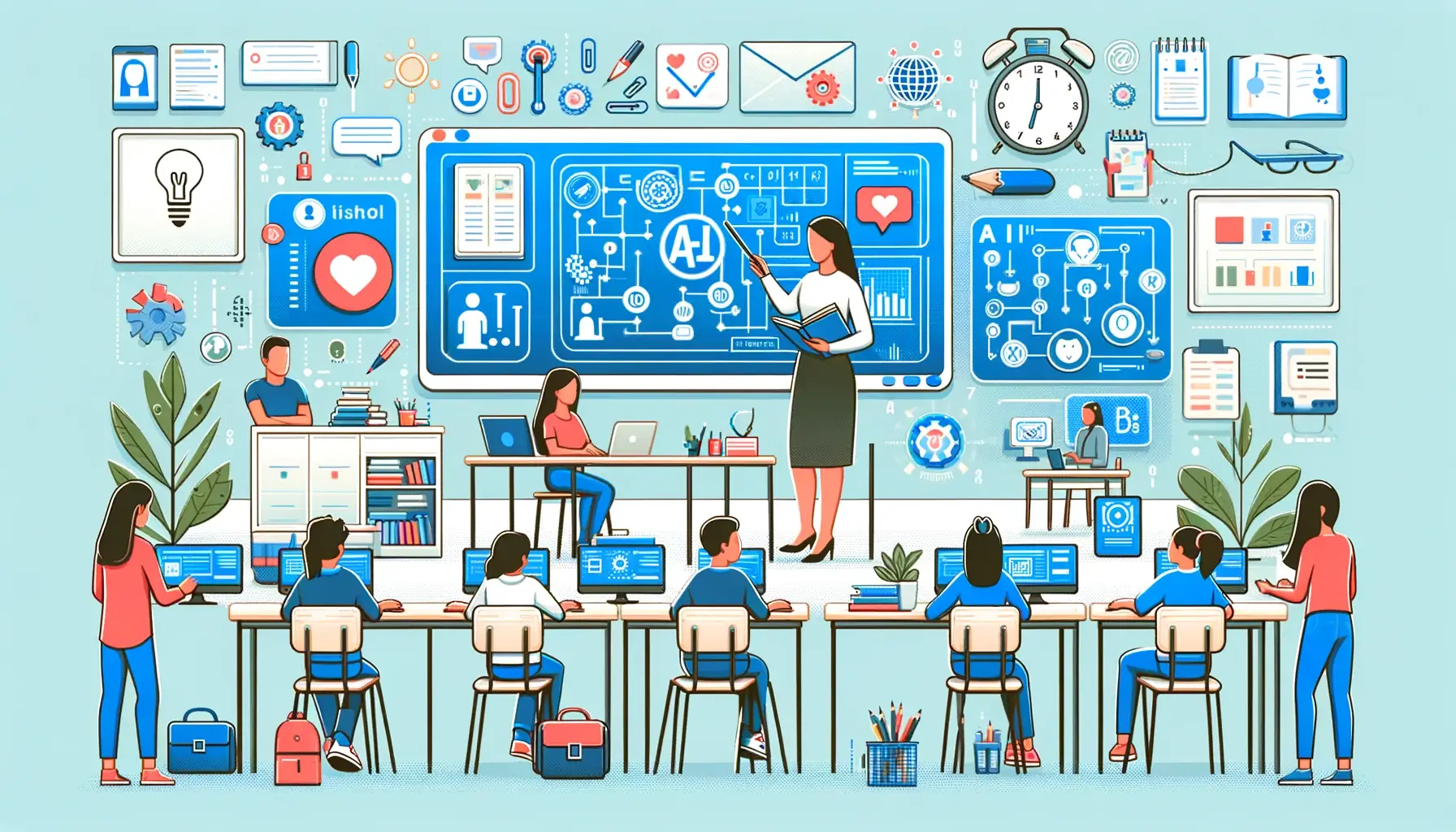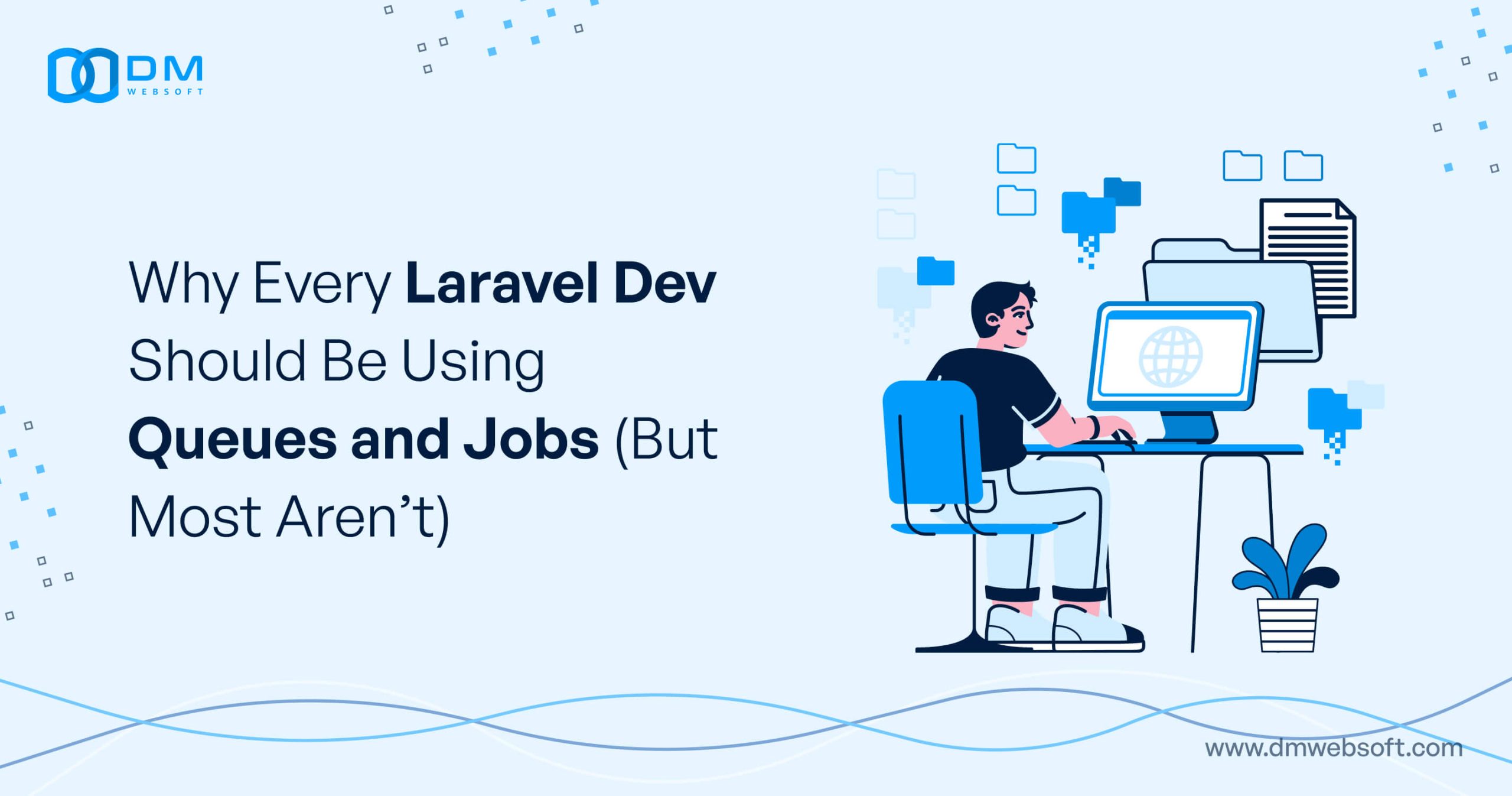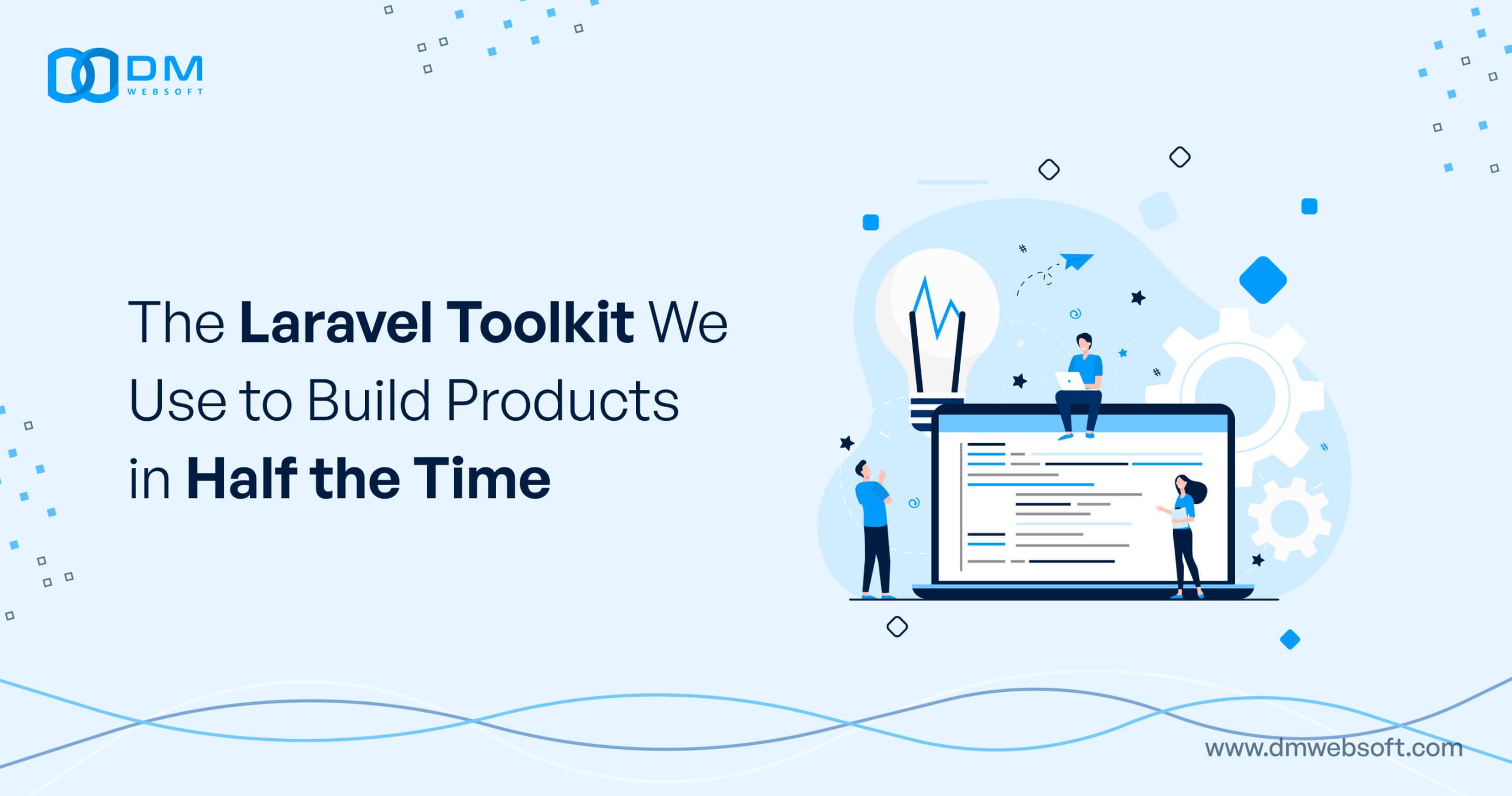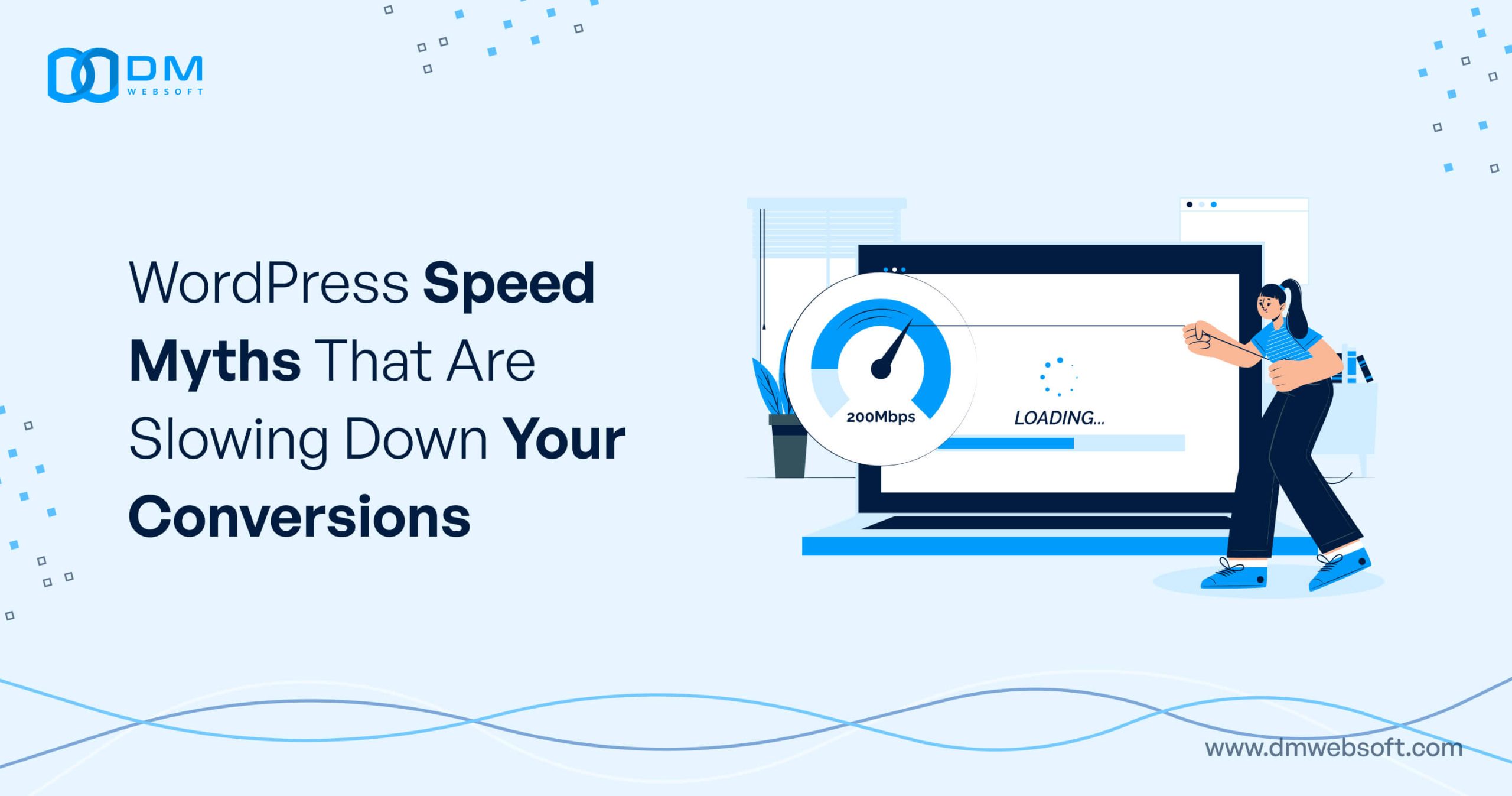DM WebSoft LLP exceeded our expectations! Their seasoned team of experts delivered a website that perfectly captures our brand essence. Their 15+ years of experience truly shine through in their exceptional web development skills.
The Future of Learning: How AI is Transforming Education

TABLE OF CONTENT
Introduction
The Rise of AI in Education
Personalized Learning through AI
AI in Curriculum Development and Assessment
The Role of AI in Classroom Management
Challenges and Ethical Considerations of AI in Education
Case Studies: AI Success Stories in Education
The Future of AI in Education: Trends and Predictions
How DM WebSoft LLP Integrates AI in the Education Industry
Conclusion
Get in Touch
Introduction
With the advent of Artificial Intelligence (AI) in the education sector, there arises the dawn of a new era for delivering, experiencing, and managing learning. The injection of AI into the learning environment is now branded the next frontier in educational innovation. The infusion of AI into the learning environment heralds a future where education can become more individualized, accessible, and efficient. This blog post describes the growing role of AI in changing education toward a more individualized, customized learning experience. Look into the teaching administrative process that can be automated and the analysis in the learning process by AI.
The entry of AI into education is proof not only that technology has advanced but that it answers to the cumulative demand for a more diverse model of learning and bridging the gap in access to learning. From the opportunities of AI-driven, tailored learning platforms to systems personalized in preparing students’ homework, grading it, and providing smart feedback, the opportunities of AI being a game-changer on the educational landscape are humongous.
The road to introducing AI in education is anything but clear and smooth, containing ethical problems, the digital gap, and protection of data privacy. However, with such potential, the same stands helpful for further improving the learning achievements, democratically taking the education out into the global realm.
The main idea here is that through different innovators, like DM WebSoft LLP, the integration of AI is possible in a domain like education to bring out possibilities for technology to bring in good change. On the other pole, DM WebSoft LLP seeks to develop AI-power solutions customized to the educational sector, which makes the best interest for engaging, inclusive, and effective environments for the students.
The Rise of AI in Education
It is a shift that revolutionary learning and teaching put into two entirely different paradigms. In this digital dawn of transformation, AI is looked at as the major force that will drive the future of education into horizons yet to be seen. The growing influence of AI in the sphere of education would not be a trend but, by all means, a fundamental change that could surely strengthen technology toward more individual, accessible, and effective learning.
- Personalized Learning Experiences: The most influential way in which AI is set to have its most impact is the capability to create individual learning experiences. For example, AI algorithms are designed in such a manner as to analyze the learning patterns, inclinations, and performance of any single individual student, for customizing the corresponding educational content. Thus, personalization ensures that every student has had the instruction and the resources delivered in just the right way to enable them to produce the best results of learning. Adaptive learning platforms, together with intelligent tutoring systems, are devices showing AI in preparing the learning process as specialized as fingerprints of students.
- Automating Administrative Tasks: But AI’s work goes much further than helping out in the classroom. It also works on fine-tuning the automation of time-consuming administrative tasks both for educators and institutions: grading assignments, admissions management, and real-time feedback. This allows teachers to be more focused on teaching and the students themselves, hence a better learning experience.
- Enhancing Accessibility: AI technologies also tear down barriers to education; learning becomes much more reachable for students who come from all across the world. Voice recognition and translation services fully guarantee equal chances for students when accessing learning materials for learners with different abilities and for those who are speakers of other background languages without struggle. The role of AI-driven platforms, with the help of educational resources, should be able to reach even to the remotest place where geography should not be a hurdle to quality education.
- Data-Driven Insights: What this capability brings out is an opportunity for educators to have insights in the student engagement and therefore learning progress. Such strategies are in line with the student needs based on research and teaching, forming of curriculums, and education policy.
Personalized Learning through AI
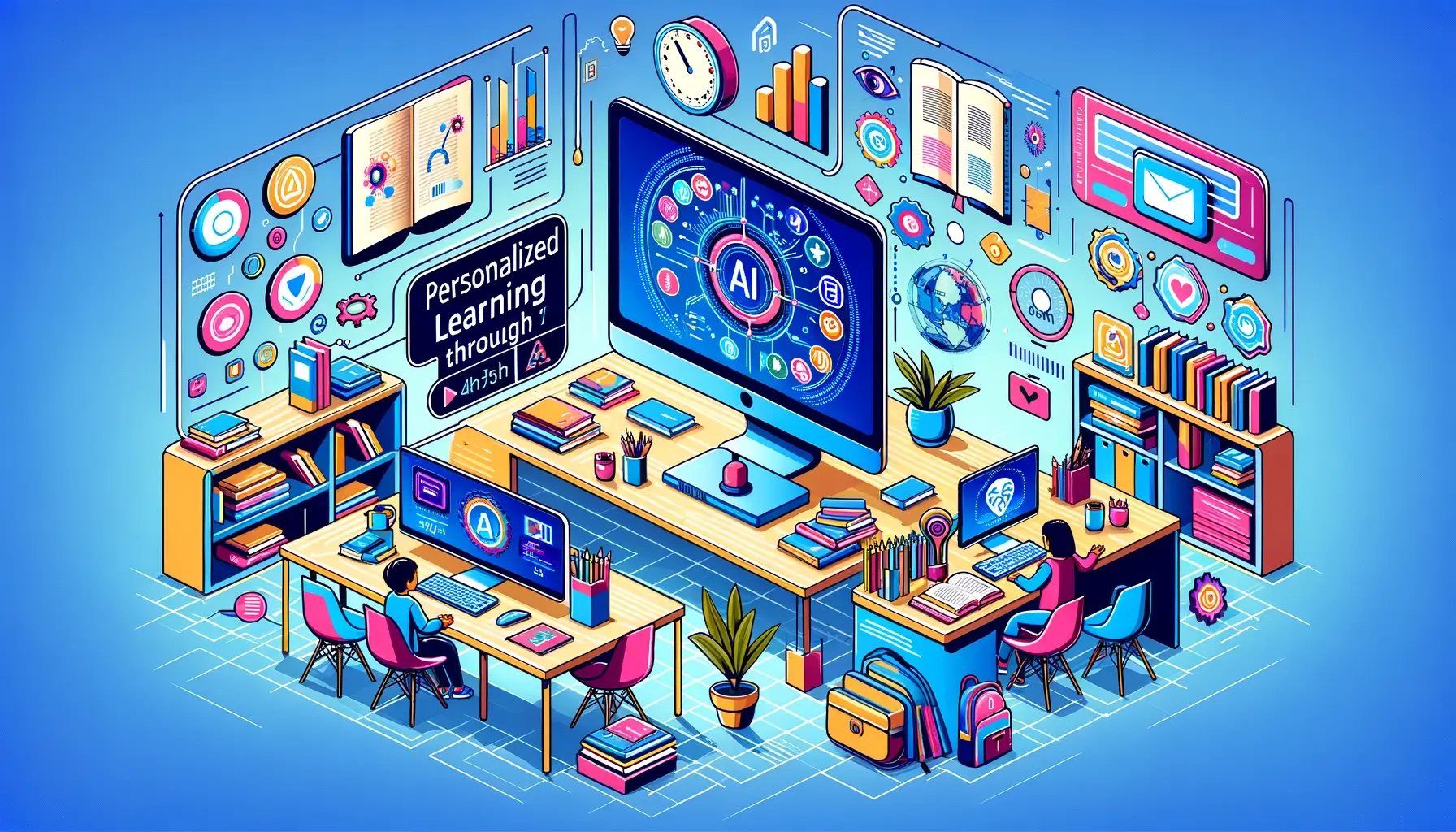
This opens up a great scope for the education sector, as with the development of personalized learning experiences, the uniqueness of what is needed, preferred, and the pace of learning per individual student can be well taken care of. It is a model revolutionarily remote from the conventional education system of one size fits all, going towards a much more inclusive and powerful learning environment.
- Adaptive Learning Platforms: Sitting at the heart of these changes are AI-powered adaptive learning platforms. In this case, such an adaptive learning platform will analyze the student’s interactions and thus enable the student to take on their understanding of the concepts in real-time and modify the same in the curriculum accordingly. The AI diagnoses the areas of strength and those that need improvement to design learning experiences that challenge the student at the right level but still provide him with support to move ahead. This automatic accommodation, in turn, ensures every individual learner has support commensurate with the current level of his understanding for more appealing and productive learning.
- Intelligent Tutoring Systems: The concept of ITS, an intelligent tutoring system, also foregrounds AI, simulating one-on-one interaction between the student and teacher. These systems give instantaneous feedback, answering questions and explaining a range of ways for the student to understand before doing so. The point is that much level of individual attention was never available in any conventional setup, with the time and resource constraints.
- Predictive Analytics: It will go further with predictive analytics that sets the pace for personalized learning through AI. The student’s behavior in learning, therefore, will be predicted and, consequently, come up with possible challenges that will arise and the learning outputs. The early alerts, therefore, enable an educator to act upon them by either reassigning further resources or changing how they teach to fit their students best.
- Enhancing Accessibility: With AI-powered adaptive learning, the improvement of the academic performance of the learner goes beyond; it also improves access to education for differently-abled learners. The tools can adapt to how learners represent content based on sensory and cognitive aspects. It provides opportunities for presentations, such as text to voice for the blind, interactive or video for the hearing-impaired, and interactive or video to accommodate learning disabilities. Such an inclusiveness would be speaking to the possibility that AI would have in democratizing education in such a way that all the students can get to succeed.
Going into the learning personalization through AI would optimize not only the educational outputs but get the student ready for a world where flexibility and lifelong learning have to be primary. Educators will have the opportunity to mold the individual learning environment with AI, giving the possibility to the talent of every learner for his lifetime learning and personal development.
AI in Curriculum Development and Assessment
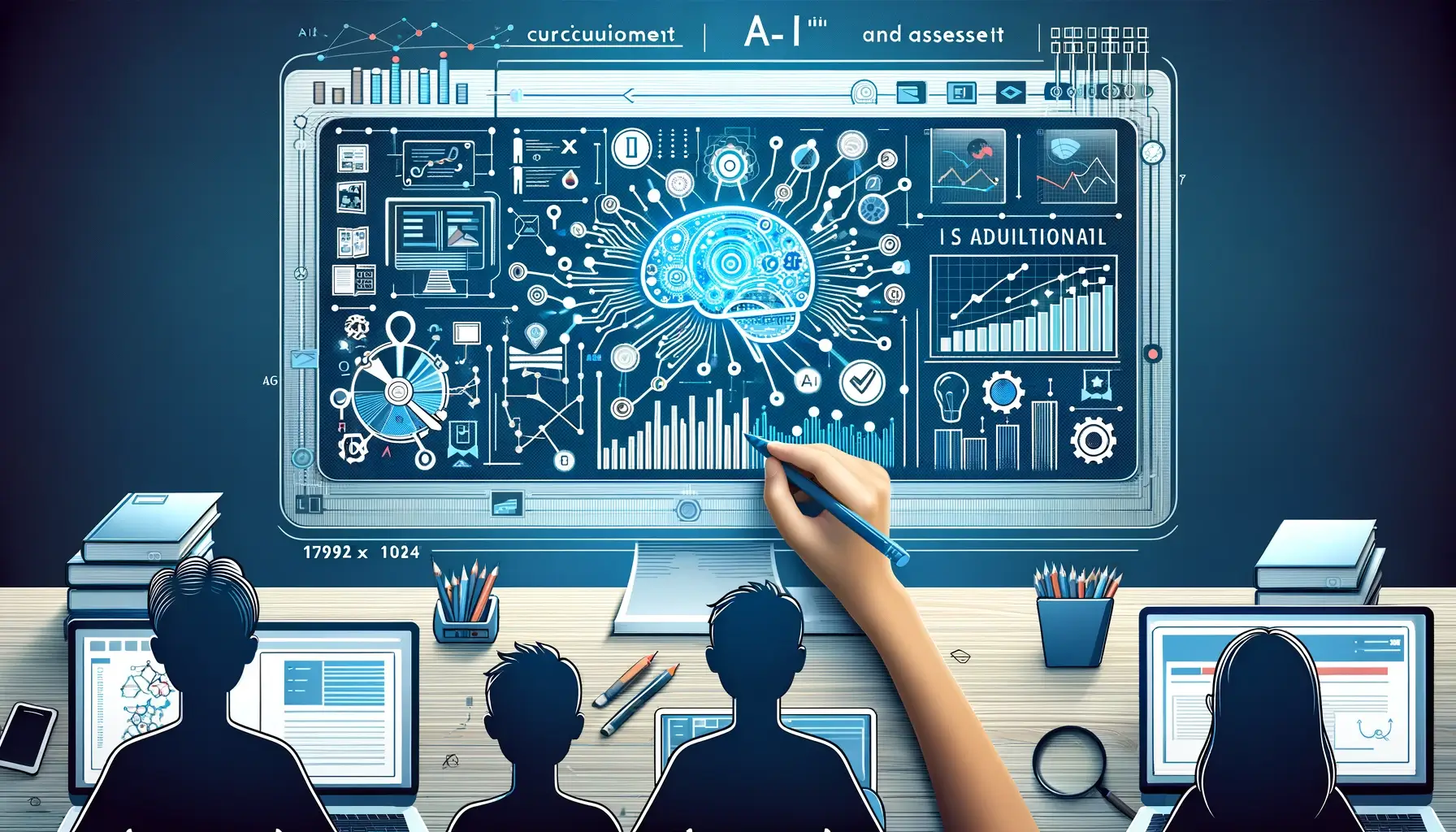
This, indeed, is what Artificial Intelligence (AI) is doing: redefining, if not defined already, the perception of teaching towards the development of modern, more individual-learner-aligned curriculums and assessments. Curriculum development and assessment in AI can simply be understood as the process of using data and machine learning algorithms to improve and develop the collection of student performance and engagement.
- Dynamic Curriculum Development: The traditional process of curriculum development goes on in an environment where the topics and the materials at best may be static but more often continue to get an upgrade on a periodic basis. The AI approach, however, brings with it dynamic scopes, whereby the educational content continues to be perfected and adjusted. For instance, students’ engagement, the level of comprehension, and feedback at each stage in helping AI specify the part that works better and which part needs improvement would ensure that the curriculum is relevant, engaging, and inclusive for the diversity of learners.
- Personalized Assessment Tools: AI is also applied to the area of assessment, as it is currently applied in the field of designing tests, adaptable according to the achieved level of learning of the student. Contrary to traditional assessments that really follow a one-size-fits-all approach, these AI assessments really have the power to change question difficulty according to student answers and, therefore, provide a much better judgement of the student’s knowledge and skills. This practice, therefore, will reduce anxiety, upset, and frustration among the students and, therefore, give teachers deeper insights into the individual student and class comprehension.
- Predictive Analytics in Education: Further, AI applies predictive analytics such that it can predict performance among the students, hence projecting learning outcomes. It assists educators in making early interventions through supported targeting to students who are most likely to fail or not do so well in due course. Predictive analytics may, thus, put in a position the identification of learning trends and patterns that may help in long resource allocation and long-term planning for the educational strategies.
- Facilitating Feedback Loops: AI closes and ameliorates the feedback loop that exists between the students and the educators. Automated grading could further avail instant feedback to learners on areas of their strength and those that need to be developed. For the educators, AI can allow them the possibility of very detailed reports from class performances to topic coverage, hence identifying topics that students may not be picking well in terms of teaching.
These are likely the components—curriculum development and assessment—that will bring in one of the biggest hallmarks of incorporating AI into the system of education: a more personalized, efficient, and responsible approach to learning. This means that the students and educators benefit through the provision of the befitting learning experiences and the optimized teaching strategies to be assured that no single student is left out.
The Role of AI in Classroom Management
Challenges and Ethical Considerations of AI in Education
Artificial Intelligence (AI) is fast weaving into the fabric of education and comes with its own set of challenges and ethical considerations that educators, policymakers, and technologists have to tread cautiously around. It leaves no doubt that AI promises to enhance not just the learning experience but also the efficiency of operations. Nevertheless, among educational settings, the problem of raising questions keeps on being very important, considering privacy, equity, and the role of educators.
- Data Privacy and Security: They raise concerns in various issues, with the most pressing one being related to sensitive student data handling. In fact, AI systems rely on very great amounts of data for them to work perfectly, such as personal information to deep learning behaviors. The data have prime importance: it has to be private and secure, as breaches may have great consequences both for students and institutions. This involves educators and technologists working together to set very tight measures in the protection of data and sensitize the students in the area of digital literacy and safety.
- Bias and Equity: A third reason would be that the AI algorithm gives rise to a bias that gets produced or even aggravated. Poorly designed AI systems are likely to inherit societal biases present in their training data and yield unfair or, in the worst case, discriminatory outcomes. This, therefore, has great input, especially in education, where equity needs to be realized not only from access but from fairness in opportunities. Ensuring that the AI for education is designed with diversified data and perspectives becomes an issue of attaining equity and inclusivity, which takes a concerted effort in addressing algorithmic bias.
- The Role of Educators: The other most likely reflection of AI use in education is the change in the role of the educator. Therefore, while AI will automate some tasks and present personalized learning solutions, it will never replace human teaching necessities, which include empathy, creativity, and moral guiding. Educators at all times have to know the best way to use AIs to back up their teaching and not displace it. Professional development and ongoing support will place them in a good position to do an excellent job using the AIs in their teaching.
- Ethical Use of AI: Lastly, this framework will be used within the jurisdiction that ensures the use of ethical AI in education, only to the extent that such technologies work for the welfare of the student on behalf of educational goals. This relates to other concerns on how the application of AI would affect the autonomy of students, who would have to consent to using the AI tools and the requirements of transparency in how AI systems, in general, make decisions that affect learning outcomes.
This is where, with these rocky ethical considerations of AI in education, a multi-stakeholder approach of educators, students, parents, policymakers, and technologists is going to break new ground. After considering these directly, the community of education will then be in a position to reap the fruit of AI and protect at the same time from the risks posed and warrant a future of innovative and ethically sound learning.
Case Studies: AI Success Stories in Education
Artificial Intelligence (AI) technologies are already showcasing dramatic success stories with reference to the integration of such technologies within the educational sector, just proving the prospective benefits that hold great promise for improved learning experiences and outcomes across the wider spectrum of educational settings. They provide, in a sense, no practical uses of AI, but the transformed impact on students, educators, and the process of education.
- AI-Powered Tutoring Systems: A use-case study in the application of AI-powered tutoring systems in schools. The systems provide individualized training and feedback to the students as they adapt to the students’ pace and even style of study. For example, middle schools in Texas have introduced an AI tutoring system for mathematics. Test scores showed great improvement when, through an AI tutoring system, special practice sessions were given to the learners to bridge their learning gaps and strengthen their understandings of complex concept perceptions.
- Personalized Learning Platforms: Another example of how AI impacted education is through the development of personal learning platforms using AI algorithms to fit tailor-made learning paths for every student on a need basis. One of the California-based universities adopted this software for online courses, and with its use, the level of engagement and the ratio of completion increased. This platform critically analyzed students’ interactions and performance to adjust content, ensuring that students received material challenging yet within their ability to understand.
- Enhanced Language Learning: AI has also brought a revolution in language learning. Its recent example in Europe shows that an AI language learning app has been developed that customizes itself according to the proficiency and interests of the user for more fun and meaningful ways of learning a new language. Natural language processing provides real-time correction and suggestion for users, while speech recognition provides pronunciation-based correction and suggestion to users, which would eventually lead to faster development of language skills and increased pronunciation accuracy.
- Data-Driven Educational Insights: Finally, AI-powered analytic platforms are providing educators with deep insight into student learning trends. In the other example, a school district from Australia had made use of an AI analytics tool to analyze test results and feedback from students to derive patterns in relation to improvements that could be done in the curriculum.
This data-driven approach allowed for targeted interventions, improving overall student performance and satisfaction. Such cases are, however, taking examples of the many diverse ways in which AI is impacting and making a mark on education. AI personalizes the learning experience, giving learners real-time feedback and actionable insights toward a more inclusive, efficient, and effective system.
The Future of AI in Education: Trends and Predictions
The huge reflection with the ongoing evolution of Artificial Intelligence (AI) on education is going to deepen further by sowing seeds of learning and teaching methodologies, which were not being thought till now. The future holds bright prospects for AI in education, as trends and predictions of experts portend a more personalized, accessible, and immersive learning experience for students across the world. Here, we explore some of the key trends and predictions that are likely to shape the future of AI in education.
- Hyper-Personalized Learning: It includes the movement towards personalized learning experiences, where AI dives into large bodies of data on the learning styles, preferences, and academic achievement of students to generate fully customized learning paths. The educational material is adjusted to the exact needs of any student, making the learning process more effective and fascinating.
- AI Tutors and Assistants: These are expected to grow in number, designed to provide custom support to students at their request. It will expand to cover a wide range of subjects, offering explanations, helping guide through problem-solving, and providing feedback. This will enhance learning experiences for both physical and virtual students, furthering access to education irrespective of geographical location.
- Immersive Learning with VR and AR: Combined with AI, it will provide the most immersive learning experience to enhance student engagement and comprehension. Such technologies will offer platforms for students to explore complicated subjects in a virtual setting, making learning more interactive and enjoyable. From virtual field trips to historical event simulations, immersive learning will redefine the educational landscape.
- Automated Administration: Aims to further automate many administrative tasks that, in the absence of AI, consume a significant amount of teachers’ time. From scheduling to grading assignments and managing student records, AI systems will improve operational efficiency within educational institutions.
- Ethical Considerations and Equity: Becoming paramount with deeper AI integration in education. Ensuring fairness, transparency, and respect for privacy in AI systems is crucial both at their designing and deployment levels. Addressing the digital divide to provide access to AI-influenced education for all students is another significant challenge.
The future of AI in education sets its course to revolutionize how we teach and learn, offering unparalleled opportunities for personalization, accessibility, and engagement. As we navigate these challenges, the goal is to fully realize the benefits of AI in education for all students, molding a future where technology and education collaborate to enhance learning experiences.
How DM WebSoft LLP Integrates AI in the Education Industry
DM WebSoft LLP situates itself at the leading edge in the inclusion of Artificial Intelligence (AI) in the education industry as a vision that would see a smooth blend of technology and learning converging to cut the future of transformative educational experiences. Their AI is designed with this philosophy to develop innovative solutions but at the same time be very sensitive to the needs of educators and learners. Some of their work evidently shows this commitment of using AI for the purpose of bettering the education system.
Custom AI Solutions for Personalized Learning
DM WebSoft LLP excels at offering personalized AI solutions for a detailed experience in learning. Solutions it uses adapt educational content to the needs of a particular student by using sophisticated algorithms that take up individual learning patterns. This will personalize learning to the level of challenge that the learner exactly requires, hence a push toward involvement and better outcomes. Individualized learning paths will afford the students a more tailored education to enable greater understanding and knowledge retention.
AI-Driven Analytics for Educational Insights
Realizing the fact that data lies at the pivot of the educational strategies, DM WebSoft LLP develops AI-driven analytic platforms, which help academicians stay equipped with actionable insights over performance and student engagement. It can take an enormous amount of data in education, through these tools, coming out with trends and patterns that are important in curriculum development, teaching approaches, and interventions. What is more, the analytics platforms are going to provide much better insight into the student’s need, which allows for choice-making that is informed and ultimately contributes to the learning environment.
Automating Administrative Tasks
Understanding the administrative burden upon the educators, DM WebSoft LLP organizes it with AI that handles everything administratively, right from grading and tracking of attendance to scheduling, all automated, leaving educators enough time to teach more and do lesser paperwork.
The effectiveness of such AI solutions introduces betterment in the operational dimensions of educational institutions. This makes them agile and responsive toward the needs of students and staff. DM WebSoft LLP puts AI in the education sector in a way that is not just for the sake of technology but thoughtfully applying AI in the mind-boggling challenges in education.
Our work developing personalized learning solutions, analytics for educational insights, and automating administrative tasks in schools and colleges all point to a holistic approach institutional leaders might follow to improve education with AI: making more accessible, engaging, and effective learning a reality for every student.
Conclusion
Artificial Intelligence (AI) is a propelling technology in the educational landscape of the new era of transformation for methodologies of learning and teaching. As it had been highlighted in the course of this paper, AI’s personalization of learning experiences, automation of administrative tasks, improvement of curriculum development, and support for classroom management really do underpin the potential for changing the field of education. AI unlocks a future for learning that holds great promise in the provision of an inclusive, engaging, and effective educational path for all the students of the world.
In fact, the case studies and stories of success of AI in education point exactly to the theoretical potential and practical impacts AI technologies are currently posing in class, from primary schools to universities. Such are the beacons into the profound ways in which AI can improve learning outcomes, democratize education, and prepare learners for their future in an increasingly digital world.
However, the journey ahead is not without its challenges. Ethical, data privacy, digital divide, and human-centric education are some critical issues that need to be addressed.
In this regard, educators, technologists, and policymakers would play central in attempting to merge an environment of learning that leverages the strengths of AI while at the same time protecting the same from the possible pitfalls. DM WebSoft LLP is one of those organizations that revolutionize how AI gets integrated within various education sectors and displays the fact that technology can be blended with the purpose of offering valuable, effective experiences in education. AI is now kicking off and shaping the future of learning with their customized AI solutions for distinct requirements in the education sector.
Infinite innovative spirits and a deep understanding of educational needs place them certainly in a leadership position regarding the continuing evolution of technology in education. But if there truly is a future for AI in education, it is definitely not going to be marked by the new technology but, rather, by a reimagination of the possibilities of what education could be. It is to create a greater number of adaptive, responsive, and individualized learning environments so that each student, in their turn, has an opportunity at success. The road ahead seems a mix of AI with education offering immense, untapped opportunities in learning and growth—the most exciting chapter in the story of education.
AI personalizes learning with the ability to mine individual student data in a bid to understand his learning styles, strength, and weakness. In other words, the pace of every student is uniquely edited with educational content so that this specific learning style will be both most effective and engaging.
With the fact that it might involve automatic ways of taking attendance and even issuing grades, AI will therefore have very great roles to play in the classroom management. It will also monitor students’ involvement and behaviors, and with all this information, the educator will have some insights to improve the creation of a better learning environment.
Ethical considerations would include the privacy and security of the data, biases in the AI algorithms, and accessibility of the educational tools that use AI. These are to be considered in the responsible usage of AI in education.
AI will revolutionize the world of assessment with adaptive tests that change difficulty according to the student’s answers and, therefore, give a truer measure of the student’s knowledge. Further, AI supports curriculum development through analyzing the learning outcomes and feedback to further keep on updating and optimizing the content used in education.
DM WebSoft LLP, on the other hand, offers the Education domain AI-based Personalized Learning Platforms, AI pioneered Analytical Platforms to gain in-depth insight on Student Performance, and AI Administrative Task Automation tools to boost the learning experience and overall operational effectiveness of the educational system. The company helps empower learning experiences and overall operational effectiveness for educational institutions with the help of AI.
Get Started Now !
What’s the Process ?
Request a Call
Consultation Meeting
Crafting a Tailored Proposal
Get Started Now !
Real Stories, Real Results. Discover What Our Clients Say

Working with DM WebSoft LLP was a game-changer for our business. Their technical prowess and innovative solutions transformed our online presence. A highly recommended web development agency with a stellar track record.

We are thrilled with the results DM WebSoft LLP delivered. Their deep understanding of web development coupled with years of expertise ensured a seamless and visually stunning website. True professionals!

In a digital age where first impressions matter, DM WebSoft LLP crafted a website that speaks volumes. The team’s attention to detail and commitment to quality set them apart. Thank you for making our vision a reality.

DM WebSoft LLP’s team demonstrated unparalleled expertise. Their ability to navigate complex technical challenges with ease is truly commendable. Choosing them for our web development needs was the best decision.

Exceptional service, unmatched skills! DM WebSoft LLP stands out as a leading web development agency. Their collaborative approach and commitment to excellence make them our go-to partner for all things web-related.

DM WebSoft LLP turned our ideas into a digital masterpiece. The seamless communication and timely delivery of our project showcased their professionalism. Highly impressed with the level of creativity and skill.

Our experience with DM WebSoft LLP was nothing short of amazing. From concept to execution, their team provided top-notch web development services. A reliable partner for businesses looking to elevate their online presence.

DM WebSoft LLP’s team of tech experts is second to none. Their wealth of experience reflects in the quality of their work. Our website not only meets but exceeds industry standards, thanks to their dedication.

Choosing DM WebSoft LLP was the best investment for our web development needs. Their team’s proficiency, coupled with a customer-centric approach, made the entire process smooth and enjoyable. A pleasure to work with!

